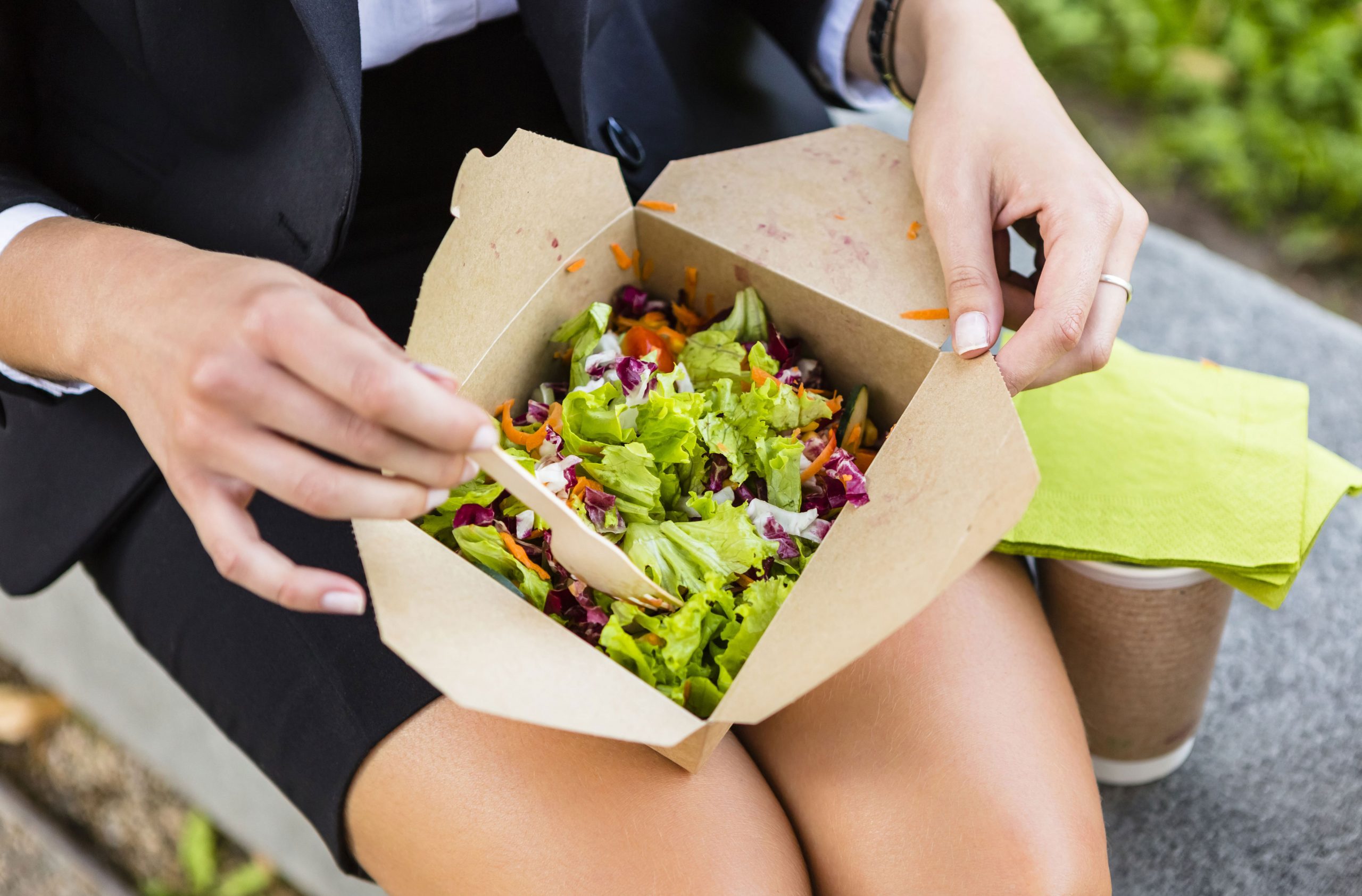Simon Lovell's Lunch Box Diet
Lose up to a stone in month with The Lunch Box Diet. There's no calorie counting and you can still enjoy your usual meals!


Want to know more about the Lunch Box Diet? From what the Lunch Box Diet is to the pros and cons of taking part in the diet, we've got everything you need to know about this latest diet fad...
Lose up to a stone in month with the new Lunch Box Diet. There's no calorie counting, you can still enjoy your usual meals and lose weight.
What's the Lunch Box Diet all about?
Fitness trainer Simon Lovell came up with the diet while he was training. He needed healthy snacks to get him through the day so he filled a lunch box full of vegetables, and instead of stopping for lunch he snacked on the food in the lunchbox throughout the day.
Simon found that he lost weight, had more energy, had more control over his appetite and noticed that his skin and overall health was better.
Some of his clients wanted to know more, so he wrote down what he was eating and suddenly it became Simon Lovell's Lunch Box Diet book with hundreds of followers.
How does it work?
The idea is that you swap your mid-morning and mid-afternoon snacks and lunch with a lunch box full of food. Simon believes that eating this way will re-train your mind and body to enjoy healthy food, you'll enjoy losing weight and the diet will help shrink your stomach - so you'll want less food.
You can still eat your regular breakfast - even if it's a fry-up. You don't need to give up alcohol and you can have your usual dinner - even if it's a takeaway! But the long-term plan is that after a week or so you'll have noticed the weight loss and you'll feel much healthier. You'll feel motivated and inspired to ditch your bad habits and swap for some of the meals outlined in Simon's book.
Parenting advice, hot topics, best buys and family finance tips delivered straight to your inbox.
After about a week most people notice such a difference that they want to change the way they eat for life and they want to start eating healthy low-calorie breakfasts and healthy lunches and dinners too.
Also people on the diet realise just how much they normally eat and how often they eat when they're not actually hungry. So, one of the best bits about the diet is that it helps you to alter your habits and lifestyle, and it's this change of lifestyle that's the key to long-term weight loss.
Like many of the best low carb diets, it's based on a balanced but low-carbohydrate meal - you can add carbs, but they're called 'Active Carbs' and they are only included if you have been very active, i.e. you've been to the gym. Active carbs are foods like brown rice, wholemeal pasta, wholegrain bread.
Ideally your lunch box should be 60 per cent vegetables, 30 per cent protein (lean chicken, meat, fish, beans, tofu, Quorn, beans and pulses) and 10 per cent dressings - the recipes for these are outlined in the book.
Example lunch box A bed of spinach A handful of carrots A chopped avocado A handful of mange tout A handful of radishes A portion of grilled chicken breast or a selection of beans and pulses Black pepper A teaspoon of olive oil A sprinkling of grated cheese
Then you seal your lunch box, shake it up and you have your lunch box for the day.
Who's it good for?
Anyone who's fed-up with following extreme diets, or who always feels hungry on diets. It's also good for anyone who just wants to eat more healthily, stop comfort eating, reduce unhealthy food cravings and quit sugar.
What are the pros?
Everyone is different but you'll lose weight on the Lunch Box Diet. Many people lose around a stone in a month. You definitely get your five-a-day. It's simple to follow, there's no calorie counting and it helps you understand the principles of a balanced, healthy diet. Also, it's good if you're not into cooking as you eat mainly raw food. It's high in essential vitamins and minerals. You don't have to count calories or grams of fat and carbohydrates.
What are the cons?
You need to make time in the morning to prepare your lunch box. And you need to put in a variety of vegetables otherwise you'll get bored and you won't get a range of vitamins and minerals. If you don't like raw food or vegetables then you might be stuck on this diet.
It's recommended that you overhaul your entire diet so that eventually you are eating healthily at every meal, rather than just the lunch box.
You are also encouraged to fill your lunch box with smaller portions as you lose weight and your appetite shrinks.
How big should the lunch box be?
Just the size of a regular sandwich box or a regular child's lunch box - you can even have one with a Superman logo on it if you want!
Is there anything I can't eat?
No. But the idea is that eventually you notice that you feel better, with more energy and a smaller appetite.
Video of the Week

Jessica Dady is Food Editor at GoodtoKnow and has over 12 years of experience as a digital editor, specialising in all things food, recipes, and SEO. From the must-buy seasonal food hampers and advent calendars for Christmas to the family-friendly air fryers that’ll make dinner time a breeze, Jessica loves trying and testing various food products to find the best of the best for the busy parents among us. Over the years of working with GoodtoKnow, Jessica has had the privilege of working alongside Future’s Test Kitchen to create exclusive videos - as well as writing, testing, and shooting her own recipes. When she’s not embracing the great outdoors with her family at the weekends, Jessica enjoys baking up a storm in the kitchen with her favourite bakes being chocolate chip cookies, cupcakes, and a tray of gooey chocolate brownies.